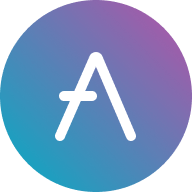Aave Borrowing Record: How It Achieved $60 Billion in Net Deposits and Dominates DeFi
Aave Borrowing Record: Breaking $60 Billion in Net Deposits
Aave, a leading decentralized finance (DeFi) protocol, has achieved a groundbreaking milestone by surpassing $60 billion in net deposits. This achievement solidifies Aave’s position as the largest DeFi lending platform, underscoring its dominance in the rapidly evolving blockchain ecosystem. In this article, we’ll explore the factors driving Aave’s growth, its innovative features, and the challenges it faces in maintaining its leadership.
Aave’s Record-Breaking Net Deposits and TVL Growth
Aave’s Total Value Locked (TVL) has experienced unprecedented growth, fueled by institutional adoption, user-friendly features, and multi-chain expansion. Surpassing $60 billion in net deposits highlights Aave’s appeal to both retail and institutional users. Key drivers of this growth include:
Stablecoin Integration: Aave supports popular stablecoins like USDC and PYUSD, providing liquidity and stability to its ecosystem.
Multi-Chain Expansion: Operating across 34 blockchains, Aave ensures scalability and accessibility for a diverse user base.
Diversified Collateral Base: The inclusion of assets like cbBTC and Aave’s native stablecoin GHO (with over 261 million tokens in circulation) enhances its collateral options.
Institutional Adoption and Integration with Traditional Finance
Aave’s growth extends beyond retail users, with significant adoption from institutional players. This is driven by:
Real-World Asset Tokenization: Aave bridges traditional finance and DeFi by enabling institutions to tokenize real-world assets and use them as collateral.
Stablecoin Liquidity: The rising demand for stablecoins among institutional investors has boosted Aave’s lending activity.
Robust Collateralization: Aave’s over-collateralized lending model ensures low liquidation rates and high security for lenders.
Aave V3 Features and Their Impact on User Adoption
The launch of Aave V3 introduced advanced features that have significantly enhanced user experience and adoption. These include:
Flash Loans: Uncollateralized loans that allow users to borrow and repay within a single transaction, enabling arbitrage and debt restructuring opportunities.
Rate Switching: Users can switch between stable and variable interest rates, offering flexibility in managing borrowing costs.
Enhanced Liquidity Provision: Aave V3 optimizes liquidity pools, ensuring efficient capital utilization and higher returns for liquidity providers.
These innovations have not only attracted new users but also contributed to the protocol’s growing TVL.
Security Concerns: Phishing Attacks Targeting Aave Users
Despite its impressive growth, Aave has faced challenges, particularly in the form of phishing attacks targeting its users. Malicious actors have used fake Google Ads to compromise wallets, raising concerns about security in the DeFi space.
Security Recommendations for Aave Users:
Use Hardware Wallets: Store assets in hardware wallets to minimize the risk of online attacks.
Verify URLs: Always double-check the URL before interacting with any DeFi platform.
Revoke Permissions: Use tools like Revoke.cash to manage and revoke unnecessary wallet permissions.
The Role of Stablecoins in Aave’s Ecosystem
Stablecoins are integral to Aave’s ecosystem, providing liquidity and stability. The integration of widely-used stablecoins like USDC and PYUSD has made Aave a preferred platform for borrowing and lending. Additionally, Aave’s native stablecoin, GHO, has gained significant traction, with over 261 million tokens in circulation, further strengthening its ecosystem.
AAVE Token Performance and Market Sentiment
Aave’s native token, AAVE, has seen significant price surges, reflecting strong market confidence. Recent highs exceeding $300 underscore the token’s importance within the protocol’s ecosystem. While price trends are influenced by market dynamics, the token’s utility in governance and staking continues to drive demand.
Governance and Tokenomics Updates for AAVE
Aave’s governance model is evolving, with proposals aimed at enhancing the utility of the AAVE token. One notable proposal involves allowing AAVE token holders to collect rewards from protocol revenue. This initiative could incentivize long-term holding and strengthen community participation in governance decisions.
Interoperability and Multi-Chain Expansion
Aave’s interoperability across 34 blockchains is a cornerstone of its scalability and resilience. By operating on multiple chains, Aave ensures:
Enhanced Accessibility: Users from various blockchain ecosystems can access Aave’s services.
Scalability: Multi-chain operations reduce congestion and improve transaction efficiency.
Resilience: Diversification across chains minimizes the impact of potential network-specific issues.
DeFi Sector Trends and Aave’s Dominance
The DeFi sector is experiencing a resurgence, with TVL across lending protocols reaching $55.6 billion. Aave’s dominance in this space is driven by:
Increased Demand for Stablecoins: The growing popularity of stablecoins has boosted lending activity.
Institutional Participation: More institutions are exploring DeFi, attracted by its transparency and efficiency.
Innovations in Lending: Features like flash loans and real-world asset tokenization set Aave apart from competitors.
Conclusion
Aave’s record-breaking $60 billion in net deposits is a testament to its innovation, scalability, and user-centric approach. By continuously evolving its features, expanding its ecosystem, and addressing security challenges, Aave remains at the forefront of the DeFi revolution. As the sector grows, Aave’s role as a leader in decentralized lending is likely to become even more pronounced.
© 2025 OKX. This article may be reproduced or distributed in its entirety, or excerpts of 100 words or less of this article may be used, provided such use is non-commercial. Any reproduction or distribution of the entire article must also prominently state: “This article is © 2025 OKX and is used with permission.” Permitted excerpts must cite to the name of the article and include attribution, for example “Article Name, [author name if applicable], © 2025 OKX.” Some content may be generated or assisted by artificial intelligence (AI) tools. No derivative works or other uses of this article are permitted.



